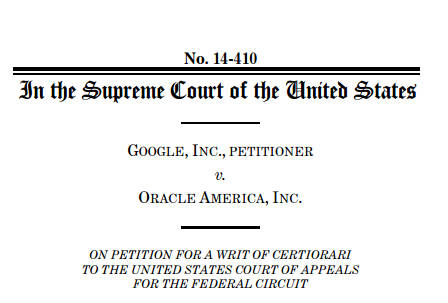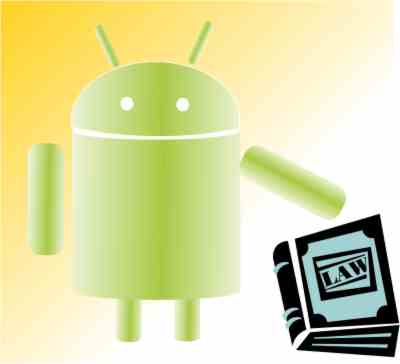| White House Advises That APIs ARE Copyrightable |
| Written by Sue Gee |
| Thursday, 28 May 2015 |
|
The argument between Google and Oracle about Java just goes on. Now we have a brief from the White House that affirms that APIs are copyrightable - which is very good for some and very bad for a much larger group.
Oracle doesn't like the fact that Google has used Java as the basis for Android. Despite the fact that this single act has made the language more important than ever, Oracle wants to damage Android using whatever resources it can find - which roughly comes down to patents and copyright. In the first trial a coding Judge, Judge William Alsup who turned out to be a programmer himself, came to the conclusion that Oracle's claim of copyright on such trivial code was simply silly, but Oracle had the decision reversed on appeal. Google argued, and still holds, that APIs are not copyrightable because they are a method of operation or sytem that allows programs to communicate. Currently the Supreme Court is considering the case and the Solicitor General of the United States (the top lawyer representing the U.S. government) has decided that APIs are copyrightable. The key point is that: "Both declaring code and implementing code ultimately perform the same practical function: They instruct a computer to work. The declaring code tells the computer to call up the implementing code, and the implementing code tells the computer to perform an operation, such as executing a sorting algorithm." Even more precise is the statement that: "Declaring code may be one step further removed than implementing code from the ultimate operation that a computer performs." In other words, an API is more expressive and hence copyrightable than the code behind it that actually does the job. You may have invented some wonderful algorithm, but the expression how how you access the algorithm is more copyrightable than the implementation of your algorithm - which if novel is patentable, but perhaps not copyrightable.
This is all very strange. The Supreme Court doesn't have to take notice of the brief and could still decide for Google, but this now seems increasingly unlikely. The reason is simply that in doing so it would damage the wider application of copyright to written expression. If APIs are subject to copyright, things suddenly get very complicated in terms of what you can do and cannot do. You might be able to reproduce the inner workings of a service, but you could not create an API that was identical and hence compatible with the existing APIs. This is surely not how progress happens?
More InformationU.S. Dept. of Justice finds Google's Supreme Court petition in Oracle case flawed, recommends denial
Related ArticlesSupreme Court Seeks Guidance On API Copyright Issue Computer Scientists Petition Supreme Court Over API Copyright Android Copyright Battle Goes To Supreme Court Judge Rules Oracle's Java APIs Not Copyrightable Oracle v. Google: Jury finds No Patent Infringement Oracle v Google Judge Is A Programmer! Oracle v Google - Are Computer Languages Copyrightable?
To be informed about new articles on I Programmer, install the I Programmer Toolbar, subscribe to the RSS feed, follow us on, Twitter, Facebook, Google+ or Linkedin, or sign up for our weekly newsletter.
Comments
or email your comment to: comments@i-programmer.info |
| Last Updated ( Thursday, 28 May 2015 ) |




